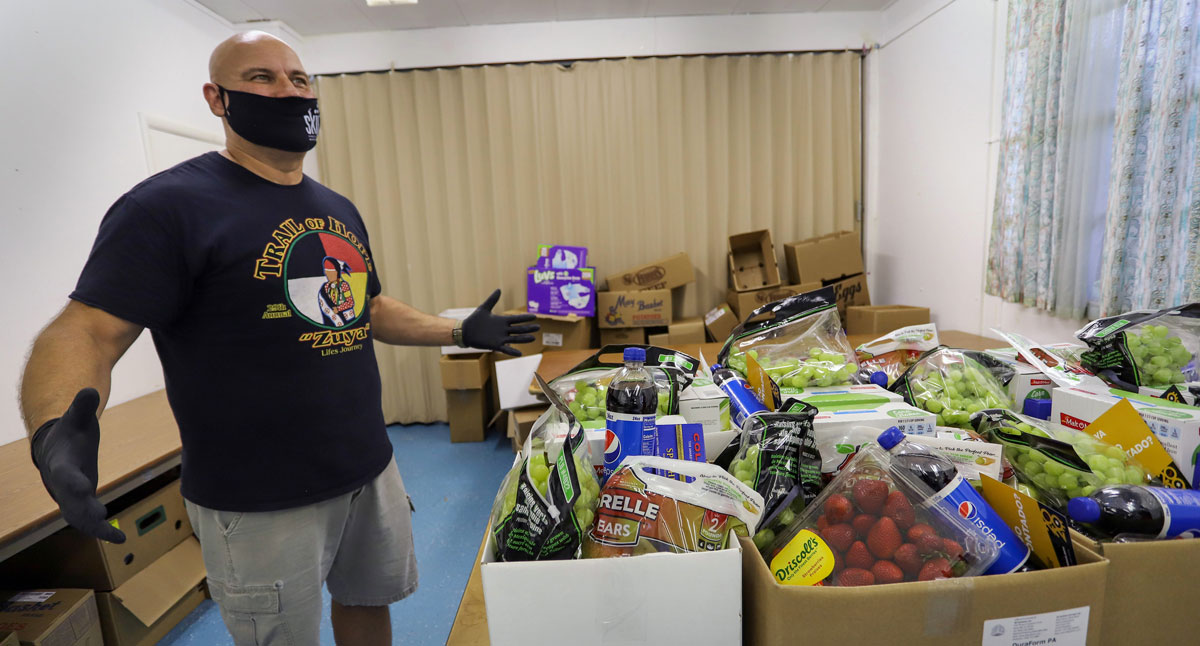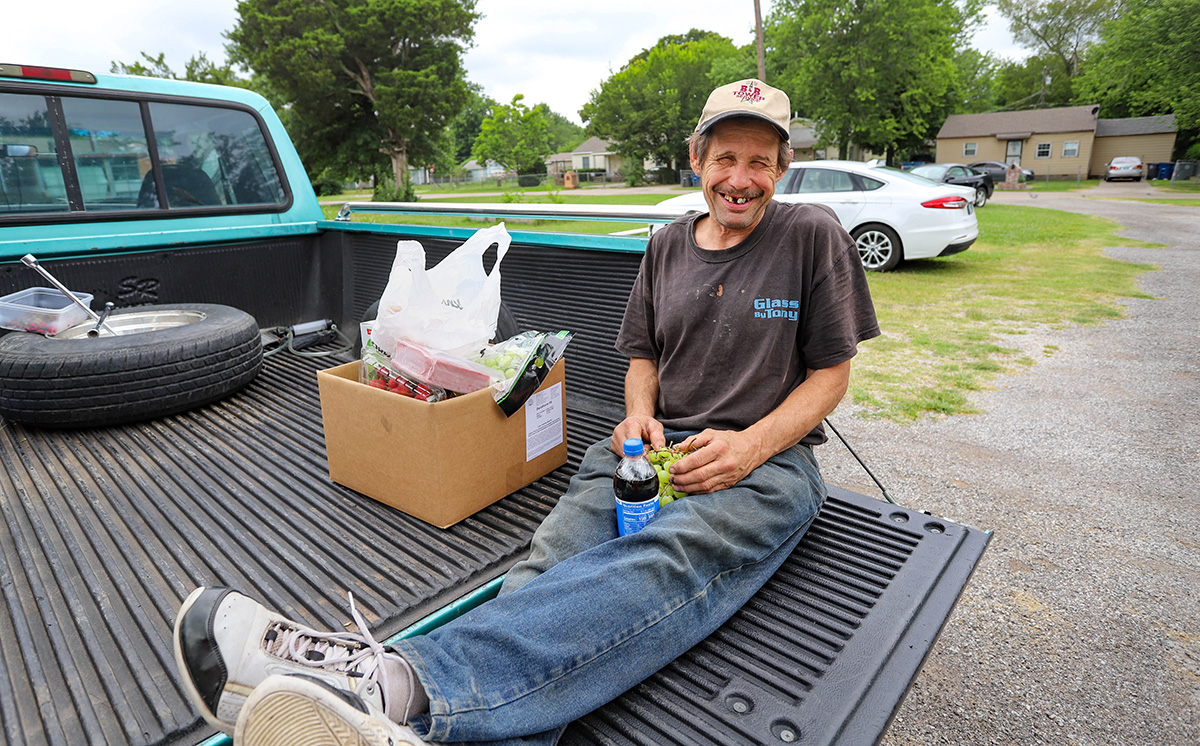On the last Friday of the month, Tulsa Indian United Methodist Church opens its doors to provide food boxes for families in need. Since the start of the COVID-19 pandemic, the number of people seeking help has doubled.
“The food bank is vital. We’ve seen the numbers go up just in the first weekend that we stopped the church services and stopped allowing people to come into the church because of the coronavirus,” said the Rev. Larry Robinson, pastor of Tulsa Indian United Methodist Church.
Oklahoma began “stay at home” measures in late March.

Robinson and his wife, Brandy, took over operation of the food pantry ministry when they joined the church six years ago. They work with the Oklahoma Food Bank to identify free food available, and when possible, they purchase fresh produce and other items.
“People are furloughed, laid off, and yet they still have to make their mortgage payment and rent,” said Robinson. “This is a help for sure.”
The Tulsa food pantry was one of six outreach ministries in the Oklahoma Indian Missionary Conference to receive a rapid response grant from the Native American Community Response Fund, coordinated by the Decolonizing Wealth project. The conference received $5,000, which was distributed to existing ministries already operating food banks, children’s ministries, and serving Native elders across Oklahoma. This was the first COVID-19 funding the conference received.
“This helps us make it to the first of the month,” said Johnny Fite, food pantry participant. “We don’t have that much income and we don’t have a garden or anything, so we appreciate what we get here. It does help.”
North Tulsa, where the church is located, was designated as a food desert in 2008 by the USDA. There are few grocery stores and many residents in the low-income area have limited access to fresh produce and healthy foods. On average, people living in North Tulsa die 14 years earlier than those living in other parts of the city, according to the Tulsa County Health Department.
With the $750 grant, the Tulsa food pantry was able to provide 26 pounds of bread and 400 pounds of bulk produce for distribution in June and July. “To this little church and what we do here, that’s a lot of money,” said Robinson.
“It’s very important for people that need it, when they need it,” said Michael, a food pantry participant and Army veteran who only wanted his first name used. He said he hardly ever receives fresh fruit.

The Rev. David Wilson, Oklahoma Indian Missionary Conference superintendent, commended the church’s efforts.
“This church does so much and has been in ministry for years in an area that has great need,” said Wilson. “It’s exciting to see people come and be able to participate with the food bank to get relief for their day-to-day life, especially as we see cases surge.”
There have been 13,172 confirmed cases of COVID-19 in Oklahoma, according to the Oklahoma State Department of Health.
How to help
Donations to support the Tulsa Indian United Methodist Church food bank can be mailed to the church at 1901 N. College Ave, Tulsa, OK 74110, or made online at www.umc-oimc.org.
The United Methodist Committee on Relief has established the UMCOR COVID-19 Relief Fund to provide grants to help churches and partners assist vulnerable populations dealing with food security and other needs related to the pandemic.
Robinson said his philosophy is that there should not be anyone who is hungry. He posts his contact number on the door of the church and encourages anyone in need to call him anytime, and they often do. He doesn’t hesitate to respond with a box of food.
“This means a lot, because I don’t get that much food stamps,” said Queen, a food pantry participant that lives in the neighboring apartment complex. “It’s not a lot, but it is enough.”
In addition to Tulsa Indian United Methodist Church, the following OIMC ministries also received a rapid response grant: Ponca Indian United Methodist Church, Ponca City; Pawnee Indian Mission United Methodist Church, Pawnee; Clinton Indian Church and Community Center, Clinton; Petarsy Mission United Methodist Church, Elgin; and Billy Hooton United Methodist Church food bank, Oklahoma City.
The Oklahoma Indian Missionary Conference also received one of six solidarity grants from the United Methodist Committee on Relief to assist Native American communities with food security and water needs during the pandemic.
Underwood is a communication consultant with ties to the Oklahoma Indian Missionary Conference. She is a member of the Comanche Nation of Oklahoma.
News media contact: Vicki Brown at 615-742-5470 or newsdesk@umcom.org. To read more United Methodist news, subscribe to the free Daily or Weekly Digests.
Like what you're reading? Support the ministry of UM News! Your support ensures the latest denominational news, dynamic stories and informative articles will continue to connect our global community. Make a tax-deductible donation at ResourceUMC.org/GiveUMCom.



